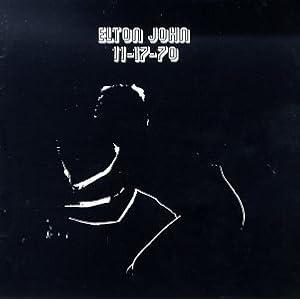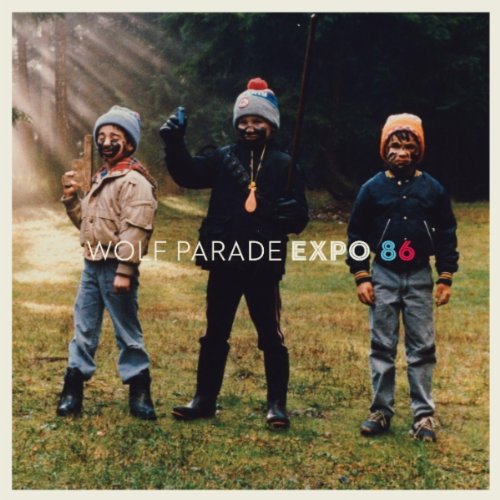"May I propose a Herzog dictum? Those who read own the world, and those who watch television lose it." -Werner Herzog
I don't believe that. I like television. I'm admittedly a fan of reality television, though in a way that really irritates most reality television fans. As somebody who reads what's actually been called an "unhealthy amount" of David Foster Wallace (his essay "Television and US Fiction" is important, in this case) I watch reality television because I like the way it fractures my own reality. I have a theory that reality TV shows are entirely staged, and not in that, "well, yeah, the producers put the people in certain situations and the people react" staged kind of way, I mean one hundred percent staged with a script and everything. I think everyone on
The Hills is an actor. They're not friends, they don't have internships at chic magazines, and Bolthouse Productions (a "promotions" company (whatever the hell that means) for which a character on the show works)
does not fucking exist. Seriously, go poke around
their alleged website for a few minutes and tell me that's not a semi-elaborate hoax. This approach at least allows me to go through these shows imagining that the people I'm watching are living in a Thomas Pynchon novel, and frankly, it makes an intensely dull television show about wealthy but altogether unsubstantial people and their inconsequential choices a little more interesting. Maybe Lauren Conrad is actually living a fairly rich cultural life somewhere, burning her money with Johnny Depp on the French Riviera. (Talk about Pynchon...)
It's an interesting thing to think about in the abstract: When did the unreality of television lose its appeal? Why do so many people tune in to shows that sort-of-mimic reality? Try wrapping your head around the posthuman stakes of
Curb Your Enthusiasm. There's a show that's funny, creative, and zany, but what's it saying? Is it a critique? Or think about how metaphysical a spin-off is. Archie Bunker was on TV, sure, but then the Jefferson's
moved somewhere. Where does that leave you, as a watcher? Doesn't it kind of feel like they're getting closer to reality. Sherman Helmsley and Pat Morita (
The Karate Kid) recently starred in a (very funny) stage production of
The Odd Couple at a small theater in Stoneham, MA. How's your sense of reality now?
Another reason I like to think that reality TV is scripted is the fact that by and large, I do not want to imagine a world in which most of these people I am watching actually exist. On the one hand, they do and say things that make me, if only momentarily, understand the motivations backing radical Islamic groups (although I always wondered what they thought of
The Bachelor.
I bet the Taliban is kind of on the fence there.). On the other hand, I shudder when I consider the deep, psychological damage that is most likely done to a person playing herself for six weeks of taping. "For whom is the funhouse fun?," as they say.
Or, more accurately:
"You look into the eyes of a chicken and you lose yourself in a completely flat, frightening stupidity. They are like a great metaphor for me. I kind of love chicken, but they frighten me
more than any other animal."
Now there's a Herzog quote I can get behind.
Because if these people are who we see, even at that basest of levels, it's frightening. On a recent episode of
The Bachelorette, the lead female character responds with furious tears to a contestant who informs her that he's in love with someone else. The show's premise, of course, is that something like eighty men vie for the attention of this one woman in the hopes of being the last man "eliminated," and in the end, two people get married. So for dramatic effect one of these final men in the grim tournament of prom dates or whatever turns out to have feelings for this other woman back in the "real world" (
sic). So naturally, our female hero is incensed. But think about this for a moment. If we imagine that this show is, to whatever small extent, real, what message is this woman sending? She's been dumping people left and right for
weeks. And she keeps talking about how "hard" it is. And now, of all things, she's been dumped. My heart really goes out to you, lady.
This, of course, is playing directly into the script. We're supposed to have these kinds of emotional responses to the situations, and it's why our relationship to reality television is so complicated. We know these people are paid well, there's this whole song and dance, there's this pseudo-career that comes out of the whole thing, &c. &c. Again, it's nicer to believe that it's all scripted. That these people are just method actors. Because if they're not, it's troubling.
Which brings me to Tyra Banks. Tyra Banks trumps my theory, and it bugs me, largely because she is the most uniquely vapid of any of these reality television characters. She made the majority of her fortune in the most superficial industry a person can imagine. She is self centered and entitled and perhaps most troubling, she believes that she isn't. We're all self centered, after all, but most of us temper that self-centeredness with a deep sense of isolation and in-consequence. This sounds worse than it is. You're supposed to feel small sometimes because you are. And if you don't, you'll end up like Tyra Banks.
The majority of my exposure to Banks has been through clips of her talk show and her reality contest show,
America's Next Top Model, which, astoundingly, has been going on for like a decade. There are certain fashion design shows that make a case for fashion as having some sort of consequence in terms of design.
ANTM is not one of them. Essentially, something like four hundred beautiful people get their pictures taken in weird costumes for an hour, then Tyra Banks does a terrible impersonation of an art critic and breaks down the photographs and arbitrarily picks a winner. One problem is that fashion is primarily commerce. It is not art. And while this is an assumption that can be challenged, Tyra Banks is reinforcing it, taking fashion further and further away from art by posing as someone who knows what art is.
Photographs are, after all, art. We had this discussion back before we had the AC/DC (the forms of electricity, not the band) discussion. Even if we're talking about commercial art, it's still art. It's Andy Warhol times a thousand. But where Banks' show creates this art, it also negates it by way of her own tepid, arbitrary analysis. Sometimes, one contestant is rewarded for being commercial, another rewarded similarly for being avant-garde, and yet another severely penalized for not "smiling with her eyes." The criticism is like a Fellini film in and of itself, and it hurts the artistic endeavors of the models, which were feeble to begin with.
It's a feebleness that's celebrated as strength, and this is by far the most unnerving of Banks' crimes. With
ANTM, Tyra Banks has set feminism back twenty years.
To begin with, I've always found it alarming that Banks' treatment of homosexuality on her show is largely stereotypical. She tends to celebrate the male homosexual community as it pertains to female fashion, but ignores lesbianism in favor of this very vague conception of the "strong, independent woman," the ideal, in this case, being herself.
This is a sentiment that permeates the psyche of the contestants (NB: Again, a reminder that while I usually operate under the belief that all of this is scripted, Banks kind of throws a wrench in the works. No one would intentionally script this kind of harmful material. It borders on subversive, and Tyra Banks is not subversive.) and tends to come up in their own analysis of their chosen profession. Every contestant brings up the fact that she wants to become a role model. To little girls. They want to set a good example, be looked up to, respected. I find this infuriating.
It's important to understand what a role model is. First, a role model doesn't ever aspire to be a role model. At least not publicly. You're already a bad role model because you're self-important. A role model is typically defined by their circumstances, and when your circumstances typically involve you, grovelling, in front of a
supermodel, a very Aryan looking
photographer, and
some kind of gay clown,
for their approval of your appearance, I'd say the chips are not, as they say, stacked in your favor. Also, a role model tends to know what his constituents need in a role model, not necessarily just what they want. Some self-awareness might do these model-role-models some good. If, for example, you are rail thin, six-four, and lauded for your beauty, you're not really in a position to do much for girls with body image issues, and you're certainly not an effective spokesperson when you spend all your face time on TV bitching about your
own body image issues because, again, you've been cast on a TV show on a major network solely because you're pretty. If you've still got body image issues, you're the one who needs a role model.
If you're a model, you can only be a role model by fitting into a perfect niche of circumstances. Tyra Banks is evil because her show doesn't reward the only kind of role model professional modeling can produce. Tyra Banks rewards slavery to the superficial. She's eternally calling contestants out for "not wanting it enough." Is that what a role model is? Someone who ascribes deep, personal meaning to something so lacking in significance?
That, in the end, is the kicker. We are defined, as individuals, by what we choose to think about, what we choose to give weight to, what we choose to call "important." And I think television is important. I think it's important that you can flip between two channels on a box in your living room, like I'm doing right now, and see, first, Tyra Banks making some girl cry and then consoling her (with the totally unconsoling phrase, "You're going to learn to try harder."), and then see Madeline Albright. It's important because it reminds us that, at the end of the day, we determine meaning, we define art, and we compartmentalize worth. Reality TV is both a compartment of and a reflection of our society that's worth noting, and Tyra Banks is worth something-- but not much.
Tyra Banks: 1.5/10





